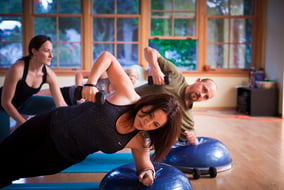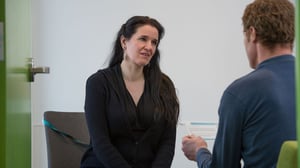Know anyone who doesn’t experience stress — even occasionally? Neither do we. The normal pace and hectic nature of modern life are stressful enough. Add a COVID-19 pandemic and widespread social discord to the mix, and feeling the need to escape is, well, inescapable.
You don’t have to go anywhere in particular for relief. Practicing mindfulness can help reduce your stress right where you are. When you're aware of and understand what's going on around and within you, you're less likely to experience stress and the toll it takes on your health, not to mention your productivity.
What is mindfulness, exactly? Most people associate it with meditation, but it’s more — and less — than that. Mindfulness is mostly about being conscious or aware, present in the moment without reacting to thoughts about the past or the future, so you can make conscious choices. You can be here now.

Get mindful, get healthy
Mindfulness can result in improved performance in many aspects of life. Its practice can make you not just more aware, but more resourceful and better balanced when you need to be.
Its health benefits are well documented: strengthening the immune system, weight loss, lower blood pressure, and pain management, just for starters. Many practitioners report improved sleep, while others cite better awareness—mental sharpness—overall. It may even help decrease diabetes symptoms.
When you're aware of and understand what's going on around and within you, you're less likely to experience stress and the toll it takes on your health, not to mention your productivity. Mindfulness lets you focus on what you're doing to get better results. (A mindfulness tip for multi-taskers: don't. You may feel more productive because you surround yourself with activities, but they only add to your stress.)
How often and how much you practice mindfulness is up to you. Even so, it should be a disciplined (though not rigorous) practice for letting go of those thousand random thoughts we carry around. It’s an act of self-kindness that can take as little as five minutes a day.
First, you sit down
You don’t need a rigidly structured program to practice mindfulness. You can even try some exercises and techniques on your own:
-
Sit comfortably, relax, and start tuning into your body
- Close your eyes if you wish (when you do, they can unfocus and relax while you avoid distractions around you)
- Relax your jaw and shoulders and let the feeling move throughout your body down through your feet
- Feel your feet on the floor
- Focus on your breathing
- Relax and let go of your thoughts.
Feel better? Perhaps, but don’t be impatient. It can take time, but the (non)effort is worth it. If you’d like to go deeper, try these mindful moments videos on YouTube. You can also ask your Vera health coach for guidance. Schedule an appointment today.
Sign up
Join our email list to receive the latest open positions, Vera Careers news, and more.





